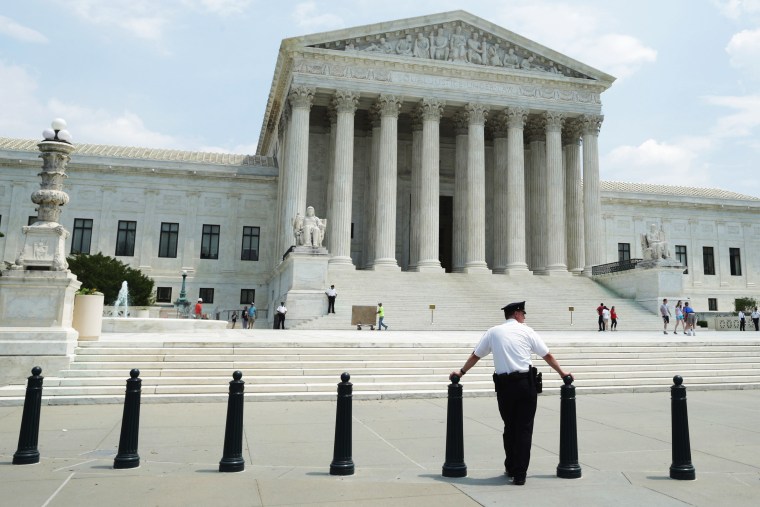Illinois policymakers approved a law more than a decade ago that allows public-sector unions to draw dues from workers, even if they don't join the union, because it is still negotiating on the employees' behalf. The rationale is simple: if these workers are going to benefit directly from the union's work, it makes sense that the employees would contribute to those representing their interests.
At least, that was the idea. As Adam Serwer explained, conservatives on the U.S. Supreme Court reached a different conclusion.
The Supreme Court dealt a serious blow to public sector unions Monday, limiting their ability to automatically deduct dues from public workers who nevertheless benefit from union negotiated contracts. [...] "This case presents the question whether the First Amendment permits a State to compel personal care providers to subsidize speech on matters of public concern by a union that they do not wish to join or support," wrote Justice Samuel Alito for the majority. "If we accepted Illinois' argument, we would approve an unprecedented violation of the bedrock principle that, except perhaps in the rarest of circumstances, no person in this country may be compelled to subsidize speech by a third party that he or she does not wish to support."
The ruling is a substantial setback to public sector unions, a bulwark of organized labor's fading power, a key constituency for the Democratic Party, and a top target for the conservative movement.
The entirety of the ruling is online here (pdf). As with the Hobby Lobby case this morning, this was a 5-4 decision, with the Republican-appointed justices in the majority.
In a phrase that seems to come up fairly often with this court, the news is bad for the left, but it could have been worse.
The fear among labor leaders, worker advocates, and progressives in general is that the justices would gut public-sector unions altogether. Conservatives on the court signaled they may eventually be willing to get there, but for now, today's ruling focuses on category of "partial public employees," not all public employees.
The result leaves public-sector unions limping, but standing. The 1977 Abood v. Detroit case has not been overturned, at least for now, despite the urging of the plaintiffs in this case.
"[T]he good news out of this case is clear: The majority declined that radical request. The Court did not, as the petitioners wanted, deprive every state and local government, in the management of their employees and programs, of the tool that many have thought necessary and appropriate to make collective bargaining work. The bad news is just as simple: The majority robbed Illinois of that choice in administering its in-home care program."
Make no mistake: this is a setback for labor. But public-sector unions were facing an existential crisis and appear to have dodged that bullet.
